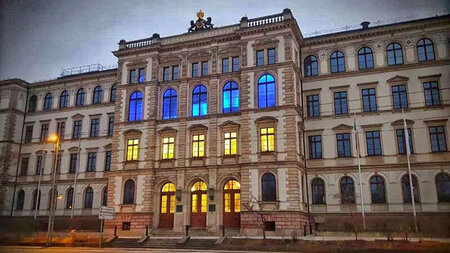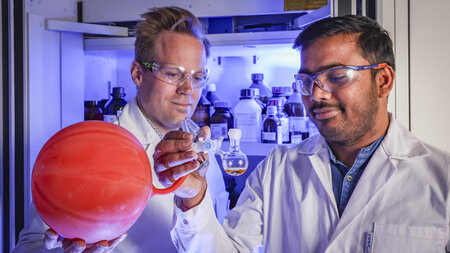How to deal with conflicting truths
Academics from Chemnitz University of Technology and Southeastern Europe strive to overcome publishing challenges as part of a DAAD project workshop in Serbia
 enlarge picture
enlarge picture Academic partners from five countries discussed the role of ‘truths’ in knowledge dissemination domains during an international workshop in Vršac, Serbia (16-19 May) and exchanged insights on good research practices during the three days of talks, tutorials and meetings. The workshop was a part of the 2019 project Conflicting Truths in Academic and Journalistic Writing, funded by the German Academic Exchange Service (DAAD), which included partners from the TU Chemnitz English Language and Linguistics professorship, the University of Split (Croatia), the University of Vlora (Albania), “St. Kliment Ohridski” University – Bitola/Ohrid (Macedonia), Ss. Cyril and Methodius University in Skopje (Macedonia), the University of Niš (Serbia), and, starting this year, the Faculty of Teacher Training in Vršac (Serbia) from the University of Belgrade. Although the Vršac English teaching expert was greeted as the “domačica” (hostess), the group was not divided into ‘hosts’ and ‘guests’ for very long, and engaged in lively interaction throughout the three-day workshop.
The organisation of the event was timely, as it was important for the partners to clarify the goals and visions of the project in terms of the overarching concept of ‘conflicting truths’, as well as to discuss conventions in academic writing and publishing. The workshop also allowed them to plan the upcoming Summer School in Ohrid, which will likewise include student and teacher contributions on the topic, and will engage the participants in hands-on activities such as conducting interviews and recognising strategic uses of frames and statistics.
The focus of this year’s project on ‘conflicting truths’ does not aim to uncover lies or deceit, but rather coexisting truths that both have validity, yet express differently evaluated perspectives of the same phenomenon. The project leader, Prof. Dr. Josef Schmied, elaborated on this focus and supported it with recent examples such as the ARD Framing Manual, which instructs on how to phrase messages in a manner which is favourable for the organisation, as well as the Relotius Case involving journalist-invented narratives. The partners gave additional examples from their research projects, such as the different coverage of anti-government protests in Serbia in pro- and anti-government media, and anti-vaccination discourses in Macedonia. The group discussed their planned applications for the Digital English World-Wide conference in Chemnitz (5-6 July 2019) and for the following edited volume of the series Research in English and Applied Linguistics (REAL). The co-editor of the volume, Jessica Dheskali, also trained the participants in meeting some of its major formal and organisational requirements. The discussions will continue during the partners’ and their seven PhD students’ research visit in Chemnitz that will take place prior to the conference.
The partners from Southeastern Europe contributed to the workshop with additional insights on academic conventions and their implications for ‘truths’ in research. Their presentations brought further discussions on the improvement of citation efficiency and quality, the meaning of ‘significance’ and the credibility of online reference and data sources.
The workshop visit also presented a great occasion for cultural exchange, as the partners explored the diverse cultural heritage of the Banat region such as the St. Gerhard Cathedral, the Bishop’s Court and the Vršac Castle. The calm, green town allowed the guests to work and unwind far away from the noise of the hectic metropolis.
The three-day workshop thus managed to confront the partners with the complex nature of ‘truth(s)’, inspire them for their upcoming research visits in Chemnitz and Summer School in Ohrid, and support them in their academic endeavours.
Learn more about the project at: www.mytuc.org/hkrm
(Author: Marina Ivanova)
Matthias Fejes
11.06.2019





